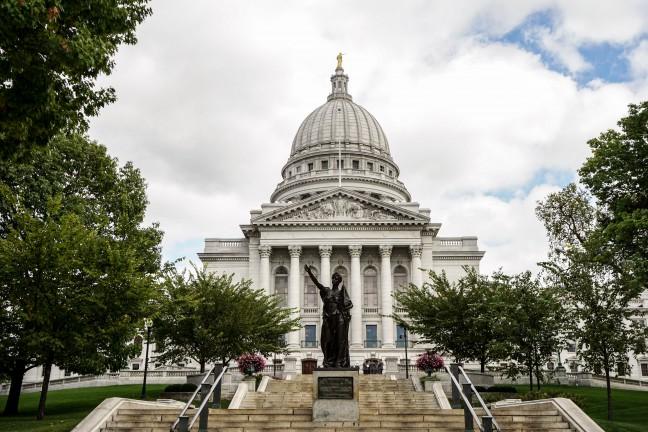Relatively speaking, the world has walked itself back from the precipice of nuclear war. 2018 is not 1962 or 1983. Not least because the Soviet Union has been swept from the geopolitical chessboard and the U.S. now stands peerlessly astride it — we no longer stand with our collective finger hovering a millimeter above the “delete civilization” button. But that does not mean the issue of nuclear disarmament should slip into the background of political discussion.
For one thing, it can be clearly seen the current geopolitical state is likely temporary. There has never been a time in recorded human history where a hegemonic global power has lasted forever, and few signs suggest that the U.S. will be the first. Just look at our politics — in the post-Cold War era, our heady 1990’s victory party was cut short by September 11, our brutal adventures in the Middle East and the Great Recession.
Vamping nuclear weaponry production sends wrong message to allies, enemies
We have cultivated a state of paranoia, wherein any lack of deference to the American-dominated global order is perceived as an almost existential threat. North Korea, for example, is a nation that is halfway across the world from us, and manifestly has no genuine interest in attacking the U.S. — the actual residents of the Korean peninsula have repeatedly attempted to forge peace despite being routinely undermined by U.S. sanctions and diplomatic intrigue. The actual power differential between the U.S. and North Korea is almost cartoonish, and yet we have been involved in a decades-long campaign of bluster and threats designed just to bring them to heel.
The U.S. has 1,600 actively-deployed nuclear weapons — enough to cause absolutely catastrophic damage to the entirety of life on Earth. Imagine then, if America’s grip on world politics was actually threatened. In that case, if a credible challenge to American political dominance emerged, the problem of those nuclear weapons would become very real indeed.
In light of Trump’s budget, speaker discusses nuclear proliferation
Let’s not forget, the U.S. once contemplated using nuclear weapons against Vietnamese people fighting for their own country against French colonialists in the First Indochina War. Optimists could say they didn’t end up doing it, but the point is that when the U.S. feels like its interests are threatened, the powers that be don’t feel much of anything like a moral compass. The longer we wait to dismantle our nuclear weapons, the more we tempt fate.
That is why the question of Madison endorsing nuclear disarmament matters. A common critique of municipal campaigns like Back from The Brink, which has been attempting to build support city-by-city for nuclear disarmament since 2017, is that they don’t have a specific goal outside of “pressure.” In a strict sense, this is true. There is no number of signatory cities that will trigger some sort of automatic nuclear climbdown.
Madison’s endorsement is certainly not likely to directly cause a reduction in the U.S. nuclear arsenal. Come on, we’re not even the largest city in Wisconsin. What is important is building the political awareness and, crucially, the political organization to move towards a future where nuclear disarmament won’t be a polite request or the subject of a concerned citizen’s letter to their representative. As with all politics that push up against the assumptions of the status quo, nuclear disarmament will only succeed if it becomes a demand.
US should learn to live with a nuclear North Korea, panelists say
In building toward that goal, local campaigns have a dual significance. Firstly, they can essentially act as low-stakes trial runs. They allow organizers to build infrastructure, tactics and support that can be called upon when the movement turns its focus towards a larger-scale campaign. Secondly, immersing people in the issue of nuclear disarmament right now means they have time to gain a deeper understanding of the problem’s intricacies. As the movement progresses, hopefully so too does their political education. They will be increasingly able to properly contextualize their single issue and link it with other political struggles. In this way, the base of support may broaden and deepen.
The City of Madison should endorse nuclear disarmament. But much more importantly, the people of Madison should begin to organize around the issue and integrate it into their political visions. They should see Madison as a good place to start and work towards bringing the demand for a future without nuclear weapons into larger chambers than City Hall.
Sam Palmer ([email protected]) is a senior majoring in biology.




















